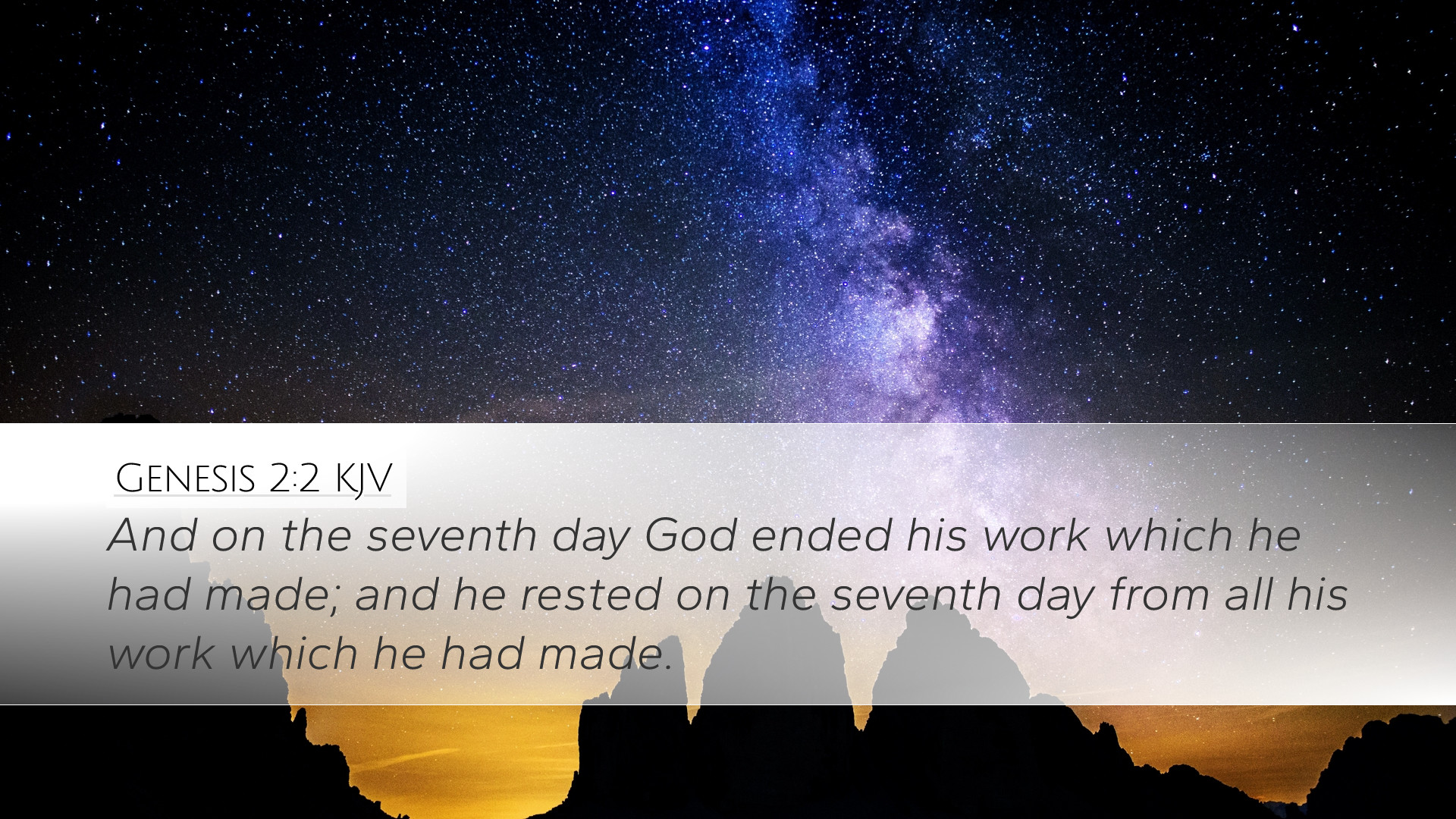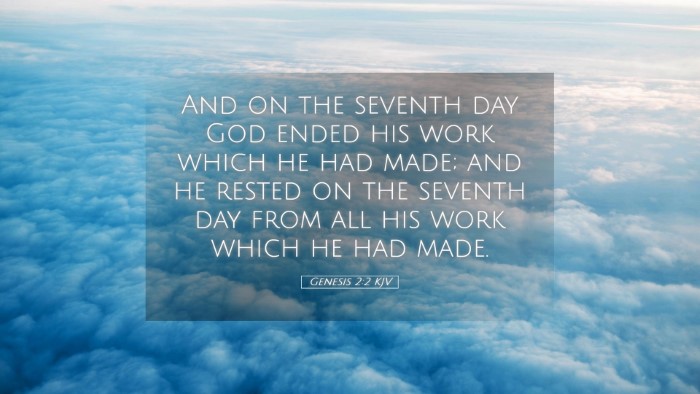Commentary on Genesis 2:2
Verse Context: Genesis 2:2 states, "And on the seventh day God ended His work which He had made; and He rested on the seventh day from all His work which He had made." This verse signifies the completion of creation and introduces the concept of rest.
Divine Completion
The act of God resting on the seventh day emphasizes the completion and perfection of His creative work. As noted in Matthew Henry's Commentary, "God’s works are perfect, and when He had done, He saw that it was very good." This completion brings about a satisfaction in the Creator, marking the culmination of His omnipotent labor.
- Rest is Not Weariness: It's essential to note, as Albert Barnes points out, that God's rest does not imply fatigue. Instead, it is a deliberate cessation from His creative activity, indicative of the completion of all things.
- Significance of the Seventh Day: Adam Clarke underscores the importance of the number seven in biblical context, signifying fullness and divine order. The seventh day is not just a day of rest but symbolizes completion in the creative acts of God.
Theological Implications
This verse bears significant theological implications for believers concerning the nature of work and rest in a divine framework. After six days of creation, the seventh day serves as a divine blueprint for human existence.
- Pattern for Humanity: The establishment of the sabbath rest in the creation narrative serves as a divine pattern for humanity's rhythm of work and rest. As noted in Matthew Henry, "The seventh day would be a day to commemorate God’s creation—set apart for divine holiness." This suggests that just as God rested, humans are encouraged to find their own rest in Him.
- Rest as Reflection: Adam Clarke notes that the sabbath is a time for reflection on divine creation, offering a chance to contemplate God's greatness, mercy, and enduring power. It becomes a day dedicated to worship and spiritual rejuvenation.
Rest in the New Testament
In examining the theme of rest within the New Covenant, we find echoes of Genesis 2:2 in the teachings of Jesus. Albert Barnes connects this genesis of rest to the Lord's Day, where believers are called not only to physical rest but spiritual renewal through Christ.
- Jesus as the Lord of the Sabbath: Jesus proclaims, "The Sabbath was made for man, not man for the Sabbath" (Mark 2:27), emphasizing that rest is intended for human benefit, enhancing one’s relationship with God.
- Eternal Rest: The New Testament also reveals that true rest is found in Christ. As believers are encouraged in Hebrews to enter God's rest, it's a call to trust in His finished work, paralleling the completion found in Genesis 2:2.
Application for Today
For pastors, students, theologians, and Bible scholars, Genesis 2:2 is a profound call to reflect on the balance of work and rest. It challenges modern views on productivity and invites a re-evaluation of how we engage with time and spirituality.
- Encouragement to Rest: Understanding the divine rest can help address burnout and overwork in contemporary society. It urges the faithful to incorporate a rhythm of sabbath rest, much needed in a fast-paced world.
- Celebrating Creation: This verse can inspire congregations to celebrate and honor God’s creation not just on the sabbath but all week long. As Matthew Henry notes, the acknowledgement of God's "very good" creation supports an attitude of gratitude and stewardship towards the world.
Conclusion
In conclusion, Genesis 2:2 transcends a mere historical account; it serves as a theological cornerstone concerning God’s nature, human existence, and the rhythm of life. In providing rest, God invites His people into a deeper relationship with Him and serves as a model for living out faith in today's world. The integration of divine rest in our lives is a vital pathway to spiritual health and renewal.


